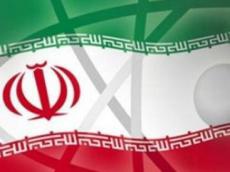|
|
TODAY.AZ / World news
Is Iran's uranium fuel safe?
15 February 2012 [15:22] - TODAY.AZ
 A professor at the University of Glasgow and expert on nuclear issues Reza Taghizadeh does not believe that nuclear fuel plates produced by Iran are neither safe nor useful.
A professor at the University of Glasgow and expert on nuclear issues Reza Taghizadeh does not believe that nuclear fuel plates produced by Iran are neither safe nor useful."Several countries have the technology of fuel plate production," he said. "Iran's fuel plates will be dangerous, useless and dirty."
Speaking to the people at the celebrations of the 33rd anniversary of the victory of the Islamic Revolution in Tehran on February 11, Iranian President Mahmoud Ahmadinejad said that Iran's big achievements in nuclear research will be announced within a few days. Several Iranian news agencies have already leaked information about the opening of the plant producing nuclear fuel plates in the near future.
Earlier, the h
ead of the Iranian Atomic Energy Organisation Firudin Abbasi said that there are no problems with the provision of the Amirabad nuclear reactor in Tehran, as well as the fuel for this reactor will be produced out in the country by the end of the year (in Iran on March 21).
Mr Taghizadeh said Iranian officials' statements in connection with new nuclear achievements are showman like.
"If Iran continues installing centrifuges in this situation, it will take about 30 years before the country begins nuclear fuel production," Mr Taghizadeh said. "Looking at the annual fuel volume required for the reactor at the Bushehr station, Iran will not be able to produce it in 30 years. The officials' statements on the eve of Fajr resemble a show."
The Amirabad research reactor needs 120 kilograms of uranium enriched to 19.75 per cent for medical purposes. The reactor was built in 1960.
The IAEA urged Iran to provide Russia with 1,200 kg of 3.5 per ent enriched uranium in late October last year in exchange for 20 per cent enriched uranium. Iran stated that it had agreed to a simultaneous exchange.
The U.S. and other Western countries suspect Iran of developing nuclear weapons under the guise of a peaceful nuclear energy programme. Tehran denies all charges saying that its nuclear programme is aimed at meeting the country's electricity needs.
The UN Security Council adopted another resolution in June 2010. It envisages tougher sanctions against Iran. This is the fourth resolution adopted by the Security Council because of Tehran's unwillingness to comply with international requirements and clarify a number of questions on Iran's nuclear programme, including its alleged military component.
/Trend/
URL: http://www.today.az/news/regions/102579.html
 Print version
Print version
Views: 1358
Connect with us. Get latest news and updates.
See Also
- 25 November 2025 [23:23]
Indonesia stops rice imports - 24 November 2025 [22:39]
Sudan’s top general rejects US-led ceasefire proposal, calling it ‘the worst yet’ - 24 November 2025 [21:15]
Egyptians vote in second phase of parliamentary elections - 24 November 2025 [20:49]
Meloni sees Trump 'willingness' on Ukraine peace plan - 24 November 2025 [20:21]
Google introduces direct file-sharing from Android to Apple devices - 24 November 2025 [09:00]
Senior Israeli officers removed from service for role in Oct. 7 security collapse - 23 November 2025 [22:24]
Face-covering headgear banned in Manila's streets - 23 November 2025 [21:38]
Dozens of children escape gunmen after 315 Abducted in Nigeria - 23 November 2025 [21:16]
US President claims he is underappreciated, says Ukraine lacks gratitude - 23 November 2025 [20:47]
Israeli strike hits Beirut, aiming at Hezbollah chief of staff
Most Popular
 Azerbaijan brings together NGOs of Turkic States for first time
Azerbaijan brings together NGOs of Turkic States for first time
 ANCA recruits odious senators against Azerbaijan: Signatures for signatures' sake
ANCA recruits odious senators against Azerbaijan: Signatures for signatures' sake
 China invests in Azerbaijan: new investment direction
China invests in Azerbaijan: new investment direction
 President Erdogan plans to meet his Russian counterpart to discuss Ukraine
President Erdogan plans to meet his Russian counterpart to discuss Ukraine
 Baku, Tehran exchange views on mutual interests and regional issues
Baku, Tehran exchange views on mutual interests and regional issues
 Israeli strike hits Beirut, aiming at Hezbollah chief of staff
Israeli strike hits Beirut, aiming at Hezbollah chief of staff
 World Bank urges productivity push in Europe & Central Asia
World Bank urges productivity push in Europe & Central Asia
